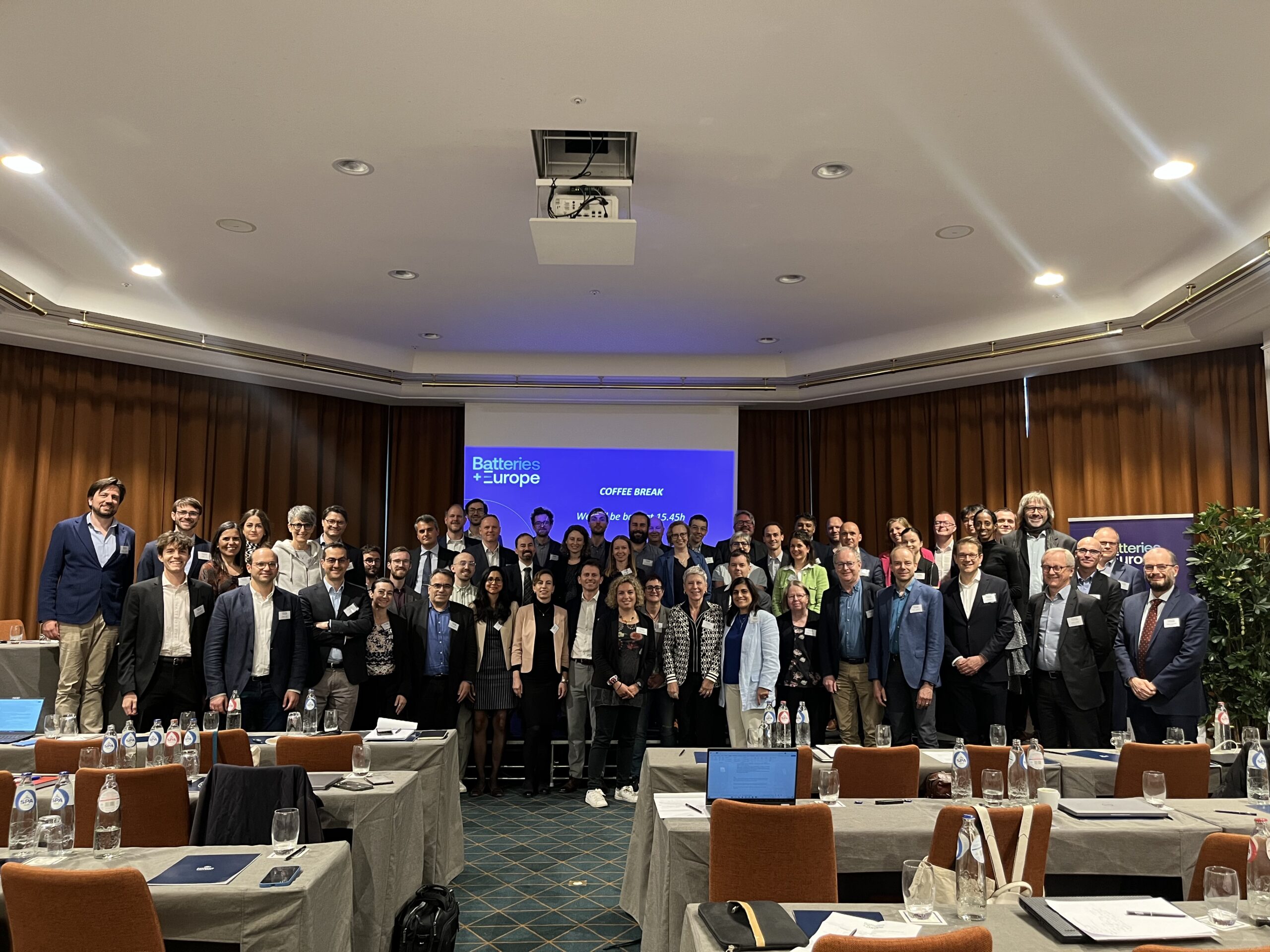
News & events
European R&I Ecosystem at Batteries Europe plenary session

During the Batteries Europe Plenary Session, held on 11 June 2024, the critical role that Europe’s R&I ecosystem has played in establishing the continent’s industrial leadership in battery technology was brought to attention. The event attracted international experts, policymakers, and industry leaders, offering a forum for discussing policy developments and cooperative efforts critical to maintaining Europe’s competitive advantage in the global battery market.
Michael Lippert, Chief of Batteries Europe and an SAFT representative, along with Bernd Biervert from the DG RTD opened the session. Their remarks set the stage for a day focused on cooperation, innovation, and policy. Representatives from the European Commission’s DG GROW centred their intervention on the new policy framework, with particular attention to the Critical Raw Materials Act and the Net Zero Industry Act, emphasizing how vital they are to protect supply chains and encouraging sustainable practices in the battery sector.
Stefan Wolf (VDI/VDE-IT), Alessandro Romanello (EIT InnoEnergy), and Monika Curto Fuentes provided an overview of the accomplishments of Batteries Europe, outlining future goals to keep Europe at the forefront of battery innovation. As part of Batteries Europe’s international monitoring, Seon Hyeog (ETRI) and Kazuyuki Imazato (NEDO) offered insights from a global perspective, highlighting the necessity of international cooperation in advancing battery technologies, sharing updates on South Korea’s and Japan’s strategies to improve the global battery supply chain and advancements in battery life cycle management.
The event included discussions about digitalisation, education and skills, and safety. Maher Chebbo (chair of the BE Digitalisation Task Force), Silvia Bodoardo (chair of the BE Education & Skills Task Force), and Daria Giovannacci (chair of the BE Safety Task Force) stressed the importance of these transversal themes in overcoming challenges and seizing opportunities in the battery industry.
Talks on hybridisation, social sciences, and sustainability were facilitated by Prasanth Venugopal (UTWENTE), Marcel Weil (chair of the BE Sustainability Task Force), and Viera Pechancova (chair of the BE Social Science & Humanities Task Force). These discussions demonstrated the significance of approaching battery technology holistically. A panel session, moderated by Michele de Gennaro (AIT), explored the role of batteries in completely decarbonising transportation. Viviana Cigolotti (ENEA), David Abril Molins (Waterborne Technology Platform), Manasa Sridhar (IVECO Group), Daniele Violato (Clean Aviation), Giorgio Travaini (Europe’s Rail), and Peter Fischer (Fraunhofer ICT) brought to light the advantages and difficulties of combining battery technology with different modes of transportation.
The event concluded with Fabrice Stassin (BEPA) presenting Europe’s new approach to battery innovation, highlighting upcoming projects aimed at preserving Europe’s competitive edge. There were also several presentations on the accelerated European Battery Alliance (EBA) Action Plan and the enlarged Battery2030+ scope, with an emphasis on sustainability, digital twins, and recycling. Kristina Edstrom and Ilka von Dalwigk facilitated these, highlighting the value of ongoing innovation and cooperation.
Michael Lippert closed this event by reaffirming the commitment to keeping Europe at the forefront of battery technology. The Batteries Europe Plenary Session emphasized the vital role that Europe’s R&I ecosystem in propelling the global battery industry forward, while highlighting both current accomplishments and future objectives.

